Choosing a sheet metal fabrication supplier is like choosing a spouse. You need someone who meets your quality standards, offers a good price, and delivers on time. The decision comes down to local vs. international suppliers. The choice you make can greatly impact the success of your project and how much it costs.
Local suppliers are great because they are close to you, easy to communicate with, and easy to control from a quality standpoint. International suppliers are great because they are cheap, have huge capacity, and have access to technology and materials you can’t get anywhere else. The right choice for you depends on your project, budget, and what you think is important.
The choice between local and international suppliers is not just about cost. It’s about weighing the pros and cons to make your supply chain better. Local suppliers are great because they can turn things around fast and are easy to talk to. International suppliers are great because they can save you money and give you access to some of the best manufacturing capabilities in the world. This blog post will help you weigh the pros and cons of both to make the best decision for you.
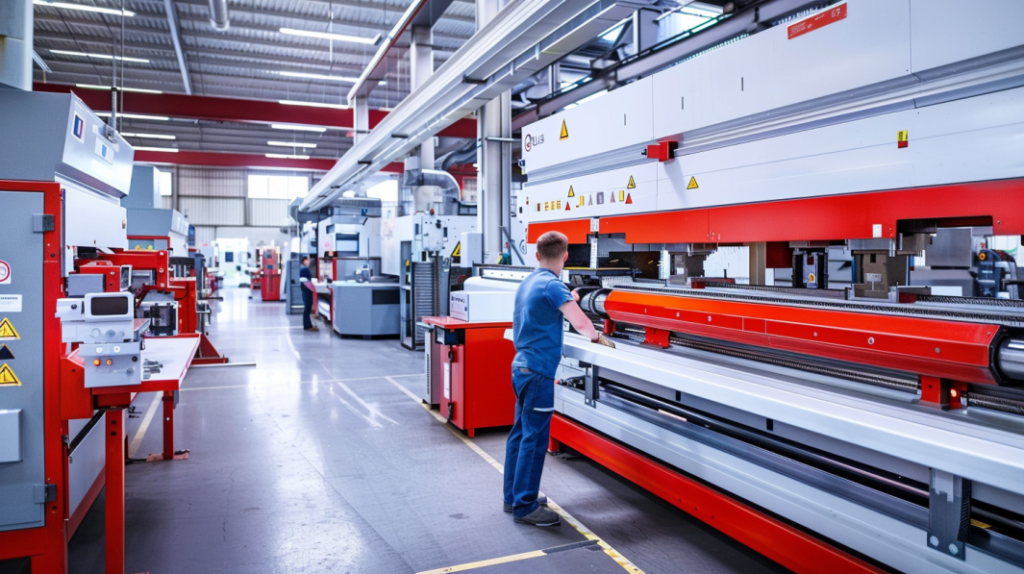
The Benefits of Using Local Sheet Metal Fabrication Suppliers
There are some definite advantages to using local suppliers. Here are some of the key benefits:
Proximity and Lower Shipping Costs
The first and most obvious benefit is proximity. Using a local supplier means your parts arrive faster and shipping costs are lower. This is critical when you need a quick turnaround. Faster shipping means you get your parts sooner, allowing you to meet tight deadlines. Also, shorter shipping distances mean you’re less likely to experience delays and damage during shipping.
Ease of Communication
It’s also easier to communicate when you use a local supplier. Being in the same time zone means you get responses quicker. You can collaborate in real-time. It’s also easier to schedule face-to-face meetings, which can help you build relationships and ensure you’re on the same page. Miscommunications are less likely, so you can be sure your supplier understands your expectations and requirements.
Quality Control
Using a local supplier means you can keep a close eye on things. Regular site visits allow you to make sure your supplier is meeting your quality standards. This hands-on approach helps you avoid defects and ensures you get consistent quality. When you’re able to visit the facility, you can see the production process in action and address any issues on the spot.
Flexibility and Customization
Local suppliers tend to be more flexible and able to offer customization. They’re usually more willing to make last-minute changes to meet your needs. This is important when you’re working on a project that requires a custom solution or you’re making iterative improvements. You typically have more options when it comes to customization, and changes can be made more quickly.
Supporting the Local Economy
Using a local supplier helps support the local economy. It helps local businesses grow and creates jobs. Supporting local businesses can also boost your company’s reputation as a community-focused business, which can be good for public relations and customer loyalty.
Challenges with Local Suppliers
While there are many advantages to using local suppliers, there are also some challenges:
- Higher Costs: Local labor and manufacturing is often more expensive.
- Capacity Limitations: Local suppliers may not have the capacity to handle large orders or a wide range of materials.
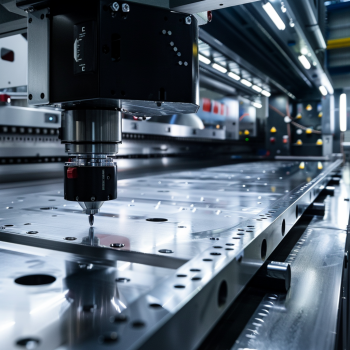
Why Choose International Sheet Metal Fabrication Suppliers?
There are also some strong reasons to consider international suppliers. Here’s why you might want to think about using them:
Cost Efficiency
International suppliers, especially in regions with low labor costs, can save you a ton of money. This can have a huge impact on your overall project budget. Lower production costs can help you keep your prices competitive.
High Capacity and Advanced Technology
Many international suppliers have big facilities that can handle large orders. They also invest in technology and advanced manufacturing techniques. You might need these capabilities if you’re working on a project that needs cutting-edge solutions and a lot of parts.
Material Selection
International suppliers often have access to a wide range of materials. This can be very important if you’re working on a project that needs specific metals or alloys that you can’t get locally. Being able to choose from a wide variety of materials can improve the quality and performance of your product.
Challenges with International Suppliers
While there are many advantages to using international suppliers, there are also a lot of challenges:
- Longer Shipping Times: Shipping internationally can take longer and cost more.
- Communication Barriers: You might have trouble communicating because of language differences and being in different time zones.
- Quality Control: Ensuring consistent quality from across the world can be very difficult.
- Tariffs and Regulations: Dealing with international trade regulations and tariffs can add complexity and cost to your project.

Factors to Consider When Choosing a Supplier
Project Requirements
Think about the volume, complexity, and material specifications of your project. If your project is super complex and you need tight quality control, you might want to go with a local supplier. If you’re working on a big project that doesn’t require a lot of complexity, an international supplier might be the way to go.
Budget
Look at the total cost, including manufacturing costs, shipping costs, and any tariffs. Local suppliers might have higher manufacturing costs but lower shipping and handling costs. International suppliers might have lower manufacturing costs but higher shipping costs and potential tariffs.
Timeline
Consider how quickly you need your project to be completed. Local suppliers can usually turn things around faster because they don’t have to ship things as far. If you’re in a hurry, you might want to go with a local supplier.
Quality Standards
Figure out what quality certifications and standards you need to meet. Make sure your supplier, whether they’re local or international, meets those standards. Local suppliers are easier to monitor and ensure compliance, but you’ll need to do more vetting if you’re working with an international supplier.
Communication Needs
Think about how much and how clearly you need to communicate with your supplier. Local suppliers are easier to communicate with and usually communicate more frequently. This can be important if you’re working on a complex project that needs constant updates and changes.

Technological Capabilities
Local Suppliers
Local suppliers often have state-of-the-art equipment tailored to regional market demands. They can quickly adapt to new technologies and provide innovative solutions. However, their technological advancements may be limited by local market size and investment capacity.
International Suppliers
International suppliers, especially those in large manufacturing hubs, have access to cutting-edge technologies. They benefit from larger markets and significant investments in innovation. This access can lead to more advanced manufacturing techniques and superior product quality.
Protecting Your Intellectual Property
Local Suppliers
Work with domestic suppliers to benefit from stronger intellectual property protection laws. This is critical because you’re protecting your designs and innovations. This is the information you have to keep secure. You can have more confidence that your ideas will be safe.
International Suppliers
Intellectual property protection is very different in other countries. Some countries have very weak intellectual property laws, which can put your intellectual property at risk. Make sure you’re working with international suppliers that have strong intellectual property protections in place.

Building a Resilient Supply Chain
Local Suppliers
Local suppliers are less affected by global disruptions. Things like pandemics, geopolitical tensions, and natural disasters can impact international supply chains. Local suppliers don’t have the same exposure to these global disruptions, so you have a more stable supply chain.
International Suppliers
International suppliers are more exposed to global supply chain issues. Delays in shipping, shortages of raw materials, and changes in international regulations can disrupt your production and delivery schedules. To mitigate these risks, you need to plan and have your contingency strategies in place.
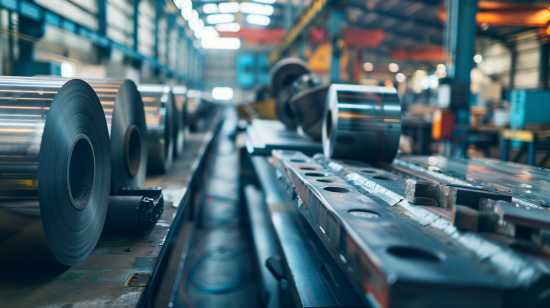
Customer Support and After-Sales Service
Local Suppliers
You can get more immediate, personalized customer service from domestic suppliers. If you have a problem after the sale, it’s easier and faster to address. Face-to-face communication can be helpful in solving problems and building relationships.
International Suppliers
It may take longer to get customer service help from international suppliers because of time zone differences and language barriers. Problems may take longer to solve, and it’s harder to get service after the sale because of the distance. Make sure you have good communication and service agreements in place.
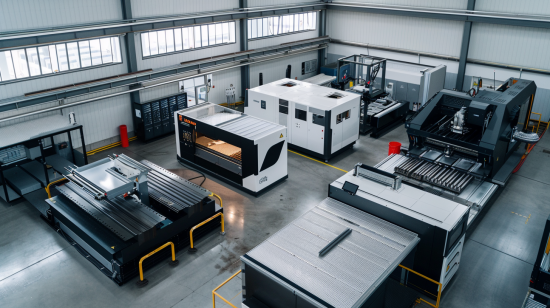
Regulatory Compliance
Local Suppliers
Domestic suppliers understand the local regulations, which makes compliance easier. They know what certifications and standards are needed, and they make sure your products are in compliance. They know what to do, which makes it easier and reduces your risk of being out of compliance.
International Suppliers
International compliance can be complicated and expensive. Different countries have different standards, and it can be a challenge to know them all. You have to do your research and keep up with all the regulations in every country.
Examples of Industries with Specific Needs
Aerospace
The aerospace industry often uses local suppliers for critical parts because of quality and safety demands. Being close to the supplier allows for better collaboration and makes it easier to meet all the strict requirements.
Consumer Electronics
Consumer electronics companies frequently use international suppliers because they’re cheaper and use more advanced manufacturing processes. When you need to make a lot of something and need advanced technology, international suppliers are the way to go.
Automotive
The automotive industry often uses a combination of local and international suppliers. They balance cost, quality, and innovation. Domestic suppliers can get you critical parts quickly, while international suppliers can get you high-volume parts at a good price.

Strategic Partnerships
Local Suppliers
Domestic suppliers offer the potential for closer collaboration and partnerships. You can work together to innovate, create customized solutions, and develop better products. It’s easy to communicate and build relationships when you’re close.
International Suppliers
International suppliers are where you find opportunities for joint ventures and global expansion. By teaming up with suppliers in key markets, you can expand your reach and get access to new technologies and materials. These relationships require management but can give you a strategic advantage.

Long-Term Relationship Building
Local Suppliers
It’s easier to build a long-term relationship with a domestic supplier, and it’s also more sustainable. When you see each other often and meet face to face, you build trust, and trust leads to loyalty. You can work together, get better service, and get better terms.
International Suppliers
Building a long-term relationship with an international supplier is more challenging and takes more effort. Distance, time zones, and cultural differences can all make it harder. However, with good communication and management, you can still have a great relationship.
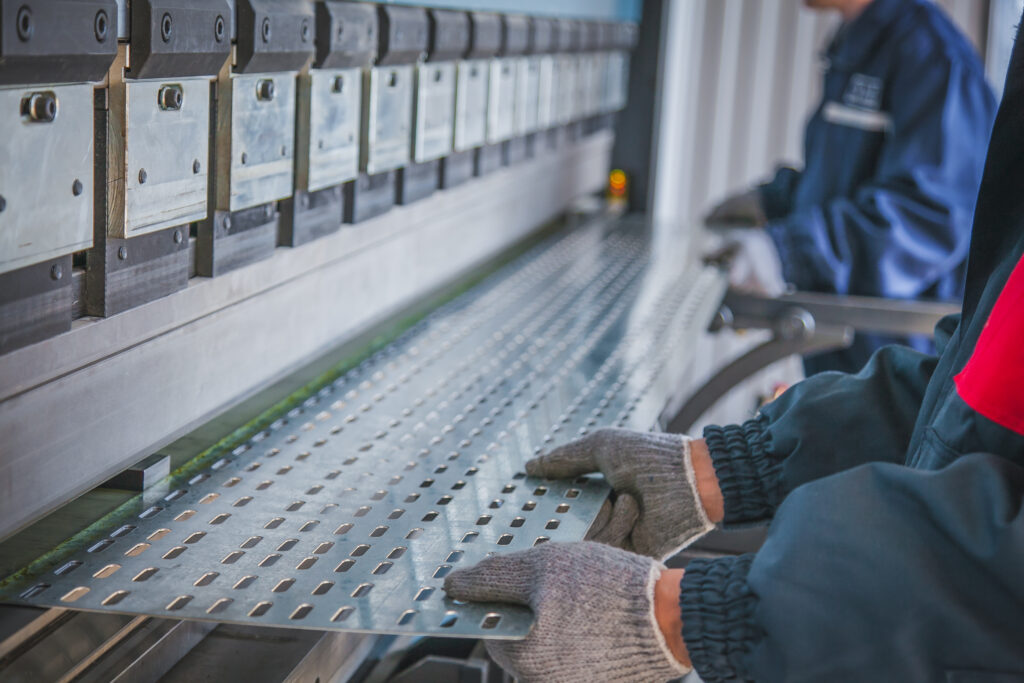
Financial Considerations
Local Suppliers
You have fewer currency exchange risks with domestic suppliers It’s easier to budget and plan financially. But labor and production costs are generally higher.
International Suppliers
International suppliers can save you money, but you have to deal with currency fluctuations and tariffs. You need to be good at managing your money and risk if you want to save money by using international suppliers.
Conclusion
Deciding between local and international sheet metal fabrication suppliers involves a lot of factors. Local suppliers are great because they’re close, you can talk to them, and you can see what they’re doing. International suppliers are great because they can save you money and have the latest technology. You need to decide what’s right for you based on your project needs, budget, time frame, and quality requirements. Often, a combination of both local and international suppliers is the best way to go.

